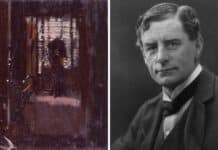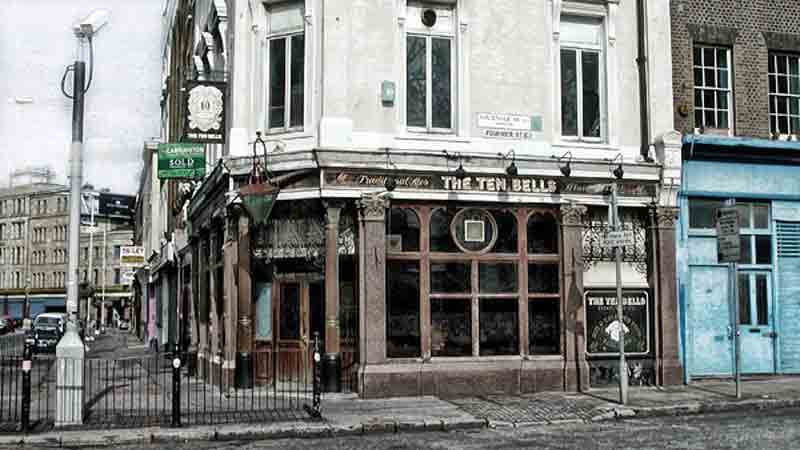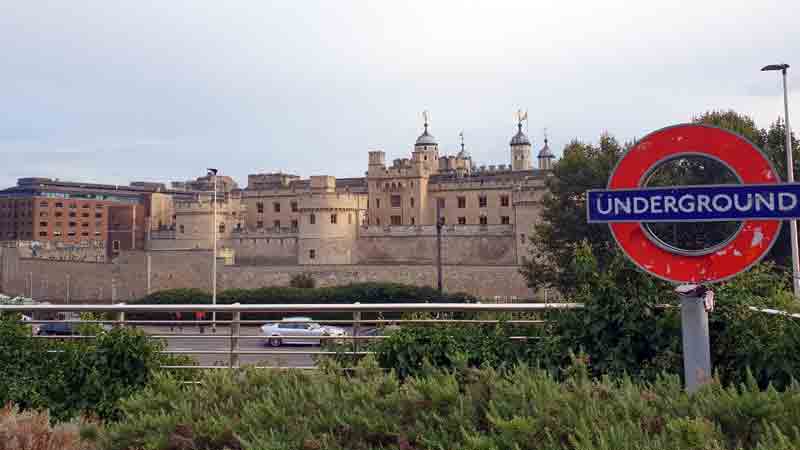Jack the Ripper 1959 is a fanciful, naïve trip to the Victorian streets of Whitechapel, says TERRY SHERWOOD
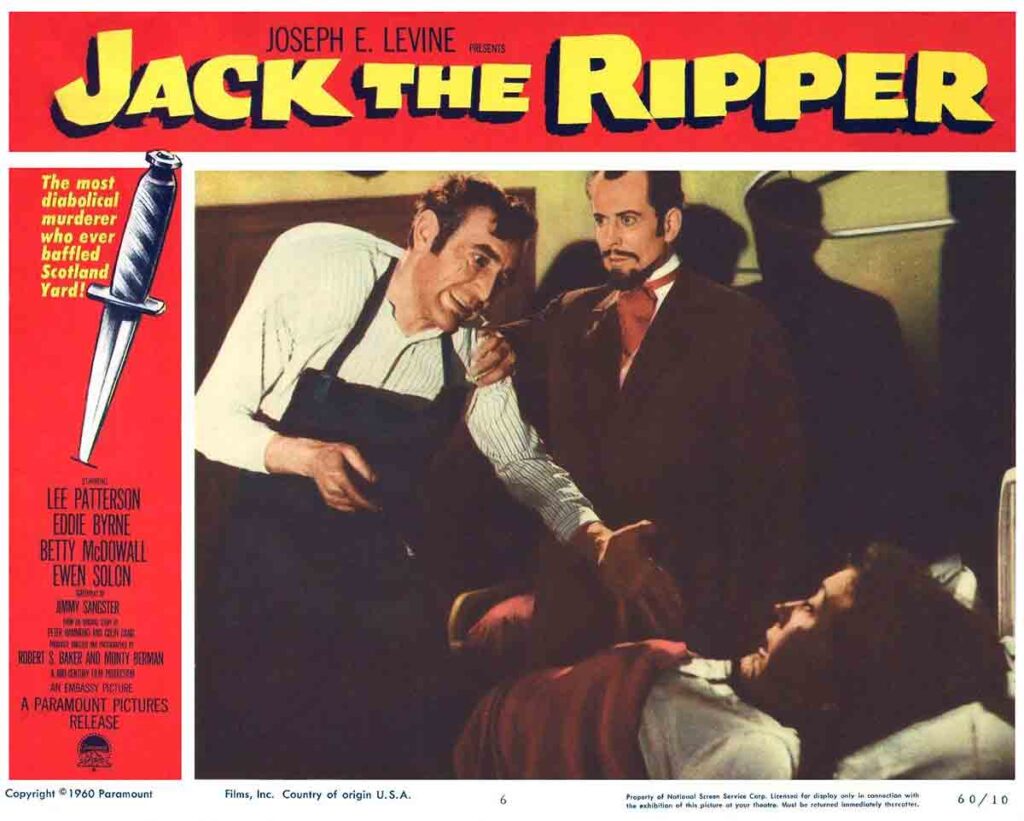
TITLE: Jack the Ripper
YEAR RELEASED: 1959
DIRECTOR: Robert S. Baker, Monty Berman
CAST: Lee Patterson, Eddie Byrne, Betty McDowall
Serial killers are a guilty pleasure for many. Escorted tours abound for fictional and actual crime scenes. It has become an industry bordering on poor taste to sell trinkets. Jack the Ripper has been the subject of many a film and stage adaption. One such version of the story, simply titled Jack the Ripper 1959 had a theatrical run and later on television.
Jack the Ripper 1959 was produced and directed by Monty Berman and Robert S. Baker.
Berman was a cinematographer who branched into producing with ITC. Early on with Baker they secured the rights from Leslie Chartis for The Saint character .The series was sold to Lew Grade at ITC and launched the world wide career of Roger Moore. Berman created the television series The Baron that later brought him to the attention of writer Dennis Spooner, with whom he formed a partnership including writer/ director Ray Austin.
Together, this team created television series that included The Champions, Department S, Jason King and Randall and Hopkirk Deceased. These were accomplished people with a strong pedigree in drama and action, and that leads me to ask why they produced this odd version of Jack the Ripper.
To The Musical Hall We Go
The film begins with an inaccuracy of one of the victims. A dance hall performer is pursued by a shadowy figure, speaks with a snake like voice before stabbing her to death in a nearby alley.
Everyone knows that the Ripper’s victims were poor street walkers of the day. The women were also horribly eviscerated in some cases beyond sane description, which is underplayed.
One can understand the lack of violence in the attack, although it was still strong. It was perhaps more difficult to show the occupation of prostitution in 1959 to the masses in film or television.
In 1888, Jack the Ripper is on his killing spree and Scotland Yard is in a frenzy. You would never know it with Inspector O’Neill (Eddie Byrne) welcoming his old friend Sam Lowry (Lee Paterson), a New York City detective who has come to visit him and ends up consulting on the case.
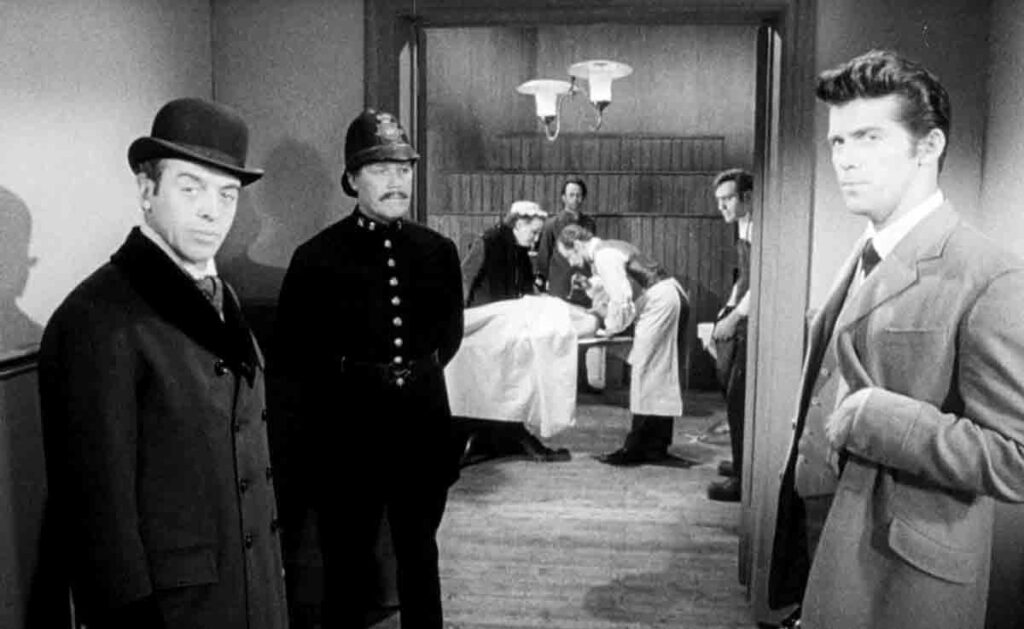
The American cavalry rides to the rescue of the beleaguered British. Sam Lowery comes complete with Elvis like quiff hair and a lantern jawed hero gaze. He becomes attracted to Ann Ford (Betty McDowall) while visiting the city. Her guardian, mysterious surgeon Dr. Tranter (John Le Mesurier), seems to be out when the Ripper murders occur, making him the suspect.
Rounding out the cast is Edwin Solon as Sir Edward Rodgers who is also a doctor with definite views of how to perform surgeries and who is the killer. This film has its theory of who the killer is and ties it up nicely at the conclusion no matter how silly it may be.
Blood of the Ripper
The script is the surprising work of Jimmy Sangster, who is no stranger to British horror writing for Hammer and other studios. Sangster creates an odd story with the American as the central character that saves the day, presumably to cater to the North American audience. Lowery’s rock and roll style of hair and movement was 1959, but many of the other actors’ grooming is reminiscent of the 1880s.
Sangster put in a disfigured, mute character, Simes, played by Denis Shaw. Simes reminds one of the voiceless servant Carl, sporting the similar eye impediment and scars, from Blood of The Vampire (1958).
The script for that Donald Wolfit epic was also penned by Jimmy Sangster. The picture does move swiftly with action and well-paced dialogue. Veteran actor Eddie Byrne sounds like he should be in a Film Noir picture in the forties rather than a 1880s Victorian setting when he tries to get tough with those who impede his investigation. Hammer character actor George Woodbridge, usually confined to roles as innkeeper, angry villager and bar man, gets to say a few lines and get into a clinch as Blake, a patron of the music hall.
Dr. Tranter (John Le Mesurier) and Sir Edward Rodgers (Edwin Solon) have some interesting dialogue back and forth as they try to make sense of what is happening and implicate themselves with actions to the audience.
Today’s Mystery Streets
Fog laden streets, musty, dark brickwork and clicking heels on pavement stones abound. Characters totally fictional from the actual events, clash, love, and take matters into their own hands to find out who the killer really is.
Jack the Ripper 1959 resembles a murder mystery with more of the mystery added and a clean ending. Film makers continue to make stories of the events in big and small budget films. Hammer would revisit the theme with Hand of the Ripper 1971 with more gore and style from director Peter Sasdy.
The ground breaking work of Hallie Rubenhold moves Ripper lore in a different direction. It is the hard-edged and heartbreaking biographies of the five women killed by Jack the Ripper called The Five. It revises the history yet again, but gives the women a human touch.
Films like Jack the Ripper 1959 have no place here, except to offer a fanciful, naïve trip to the Victorian streets of Whitechapel. A drama to watch with tongue in cheek.
Tell us what you thought of Jack the Ripper 1959 in the comments section below!


